Insurance Agency in Westport, CT
Formerly branded as Daigle & Travers Insurance, Cross Private Client Insurance is one of the most respected independent insurance agencies in Southwestern Connecticut. For over three decades, they have provided personal and commercial insurance for clients in Fairfield County CT, New England, New York, and nationwide. Through partnerships with top-rated insurance companies, they can provide you with competitive and comprehensive options for protecting your most valued assets and securing the lifestyle you’ve worked so hard to build. Our Westport office is a top writer of insurance coverage for highly successful individuals, families and businesses.
Homeowners Insurance for Westport, Wilton, Weston, and Beyond
From historic homes to high-end properties, we would be happy to show you your options when it comes to homeowners insurance. Homeowners insurance is vital for any homeowner who wants to help protect their investment. However, some houses need more coverage than others.
We are a writer of New York and Connecticut homeowners’ insurance. Currently, we serve Fairfield County, Greenwich, Weston, Westport, Wilton, Ridgefield, Redding, Easton, Fairfield, Southport, Trumbull and parts of Westchester County, Long Island, New Bedford, Rye, Scarsdale, Chappaqua, East Hampton and Sag Harbor. Our team can also provide options for renters insurance and condominium.
Auto Insurance
Making sure you have appropriate coverage for your luxury or high-end vehicles is essential. Work with our office in Westport to see what coverage options are available to you.
More Private Client Coverages
- Watercraft
- Flood
- Valuables & Collectibles
- Excess Liability
- Errors & Omissions
- Aircraft
- Builder’s Risk
- Kidnap & Ransom
Commercial Insurance Solutions for Fairfield County, CT
- Commercial General Liability
- Property Insurance
- Employment Practices Liability Insurance
- Errors & Omissions (E&O)
- Directors and Officers Liability Insurance
- Workers’ Compensation Insurance
- Commercial Auto & Fleet
Office Hours
Monday to Friday, 8:30 AM – 4:30 PM
Contact
We’re here to help. We can meet with you face to face or consult with you via phone or email. Contact the Westport, CT office today for quotes, coverage options, and premium comparisons.
Phone: 203-655-6974
Certificate Requests: CrossWestportCerts@CrossAgency.com
Claims: Barbara.Chadwick@CrossAgency.com or call 203-635-1070


